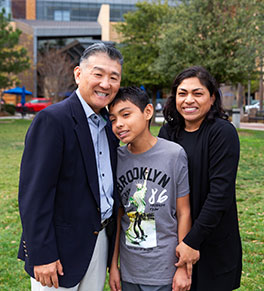Explore our Live Well blog for expert insights, tips and stories that inspire. At UCI Health, we are committed to empowering you with the knowledge and resources you need to make informed decisions about your health and well-being. Dive into topics ranging from wellness trends to breakthrough research, all in one place.
Search all our Live Well blog posts
Check out our recent News articles to learn more about UCI Health








